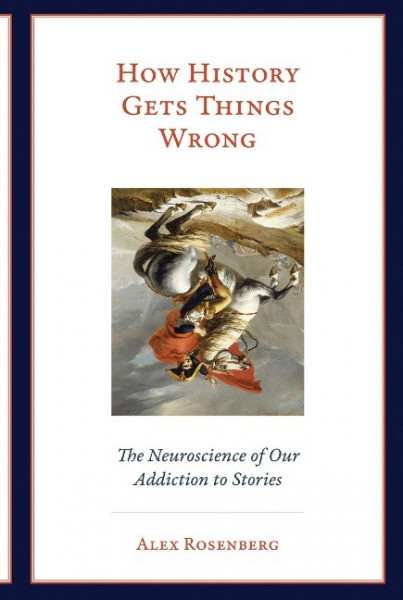
How History Gets Things Wrong
Kurzinformation
inkl. MwSt. Versandinformationen
Artikel zZt. nicht lieferbar
Artikel zZt. nicht lieferbar

Beschreibung
Why we learn the wrong things from narrative history, and how our love for stories is hard-wired.To understand something, you need to know its history. Right? Wrong, says Alex Rosenberg in How History Gets Things Wrong. Feeling especially well-informed after reading a book of popular history on the best-seller list? Don't. Narrative history is always, always wrong. It's not just incomplete or inaccurate but deeply wrong, as wrong as Ptolemaic astronomy. We no longer believe that the earth is the center of the universe. Why do we still believe in historical narrative? Our attachment to history as a vehicle for understanding has a long Darwinian pedigree and a genetic basis. Our love of stories is hard-wired. Neuroscience reveals that human evolution shaped a tool useful for survival into a defective theory of human nature. Stories historians tell, Rosenberg continues, are not only wrong but harmful. Israel and Palestine, for example, have dueling narratives of dispossession that prevent one side from compromising with the other. Henry Kissinger applied lessons drawn from the Congress of Vienna to American foreign policy with disastrous results. Human evolution improved primate mind reading—the ability to anticipate the behavior of others, whether predators, prey, or cooperators—to get us to the top of the African food chain. Now, however, this hard-wired capacity makes us think we can understand history—what the Kaiser was thinking in 1914, why Hitler declared war on the United States—by uncovering the narratives of what happened and why. In fact, Rosenberg argues, we will only understand history if we don't make it into a story. von Rosenberg, Alex
Produktdetails

So garantieren wir Dir zu jeder Zeit Premiumqualität.
Über den Autor
Alex Rosenberg is R. Taylor Cole Professor of Philosophy at Duke University. He is the author of The Atheist's Guide to Reality: Enjoying Life without Illusions and other books.

- paperback
- 256 Seiten
- Erschienen 2009
- Profile Books

- hardcover
- 498 Seiten
- Erschienen 2018
- Forgotten Books

- audioCD -
- Erschienen 2008
- BLACKSTONE PUB

- Kartoniert
- 388 Seiten
- Erschienen 2013
- Bloomsbury Academic

- Gebunden
- 294 Seiten
- Erschienen 1994
- Meiner, F

- Kartoniert
- 332 Seiten
- Erschienen 2002
- Ulrike Helmer Verlag

- Kartoniert
- 892 Seiten
- Erschienen 2019
- Westend

- paperback
- 276 Seiten
- Erschienen 1995
- STANFORD UNIV PR





































